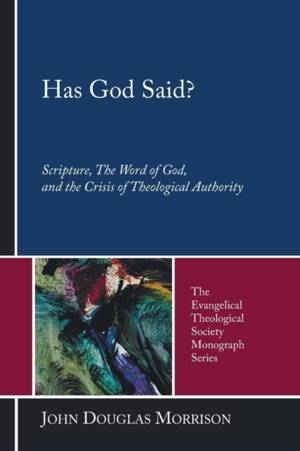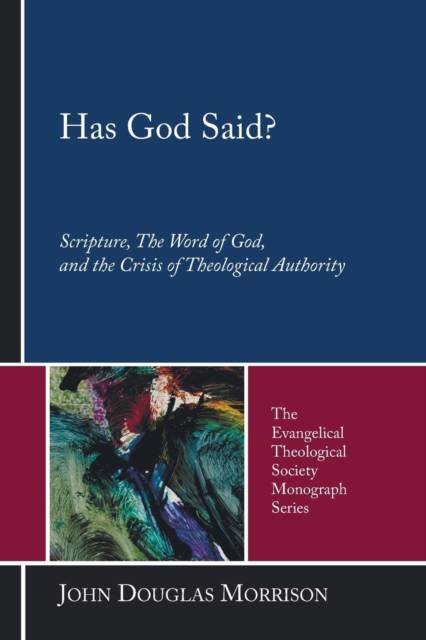
En raison d'une grêve chez bpost, votre commande pourrait être retardée. Vous avez besoin d’un livre rapidement ? Nos magasins vous accueillent à bras ouverts !
- Retrait gratuit dans votre magasin Club
- 7.000.000 titres dans notre catalogue
- Payer en toute sécurité
- Toujours un magasin près de chez vous
En raison de la grêve chez bpost, votre commande pourrait être retardée. Vous avez besoin d’un livre rapidement ? Nos magasins vous accueillent à bras ouverts !
- Retrait gratuit dans votre magasin Club
- 7.000.0000 titres dans notre catalogue
- Payer en toute sécurité
- Toujours un magasin près de chez vous
Has God Said?
Scripture, the Word of God, and the Crisis of Theological Authority
John Douglas Morrison
48,95 €
+ 97 points
Format
Description
Has God said? Has God actually spoken, declared himself and his purposes to us? Historically the Christian faith has affirmed God's redemptive, revelatory speaking as historical, contentful, redemptive, centrally in Jesus Christ and, under Christ and by the Spirit, in the text of Holy Scripture. But in the past three centuries developments in Western culture have created a crisis in relation to historical, divine authority. The modern reintroduction of destructive dualisms, cosmological and epistemological, via Descartes, Newton, Spinoza, and Kant have injured not only the physical sciences (e.g., positivism) but Christian theology as well. The resulting "eclipse of God" has permeated Western culture. In terms of the Christian understanding of revelation, it has meant the separation of God from historical action, the rejection of God's actual self-declaration, and especially in textual form, Holy Scripture. After critical analysis of these dualistic developments, this book presents the problematic effects in both Protestant (Schleiermacher, Bultmann, Tillich) and Roman Catholic (Rahner, Dulles) theology. The thought and influence of Karl Barth on the nature of Scripture is examined and distinguished from most "Barthian approaches." The effects of dualistic "Barthian" thought on contemporary evangelical views of Scripture (Pinnock, Fackre, Bloesch) are also critically analyzed and responses made (Helm, Wolterstorff, Packer). The final chapter is a christocentric, multileveled reformulation of the classical Scripture Principle, via Einstein, Torrance, and Calvin, that reaffirms the church's historical "identity thesis," that Holy Scripture is the written Word of God, a crucial aspect of God's larger redemptive-revelatory purpose in Christ.
Spécifications
Parties prenantes
- Auteur(s) :
- Editeur:
Contenu
- Nombre de pages :
- 320
- Langue:
- Anglais
- Collection :
- Tome:
- n° 5
Caractéristiques
- EAN:
- 9781597525817
- Date de parution :
- 01-03-06
- Format:
- Livre broché
- Format numérique:
- Trade paperback (VS)
- Dimensions :
- 153 mm x 228 mm
- Poids :
- 444 g

Les avis
Nous publions uniquement les avis qui respectent les conditions requises. Consultez nos conditions pour les avis.






